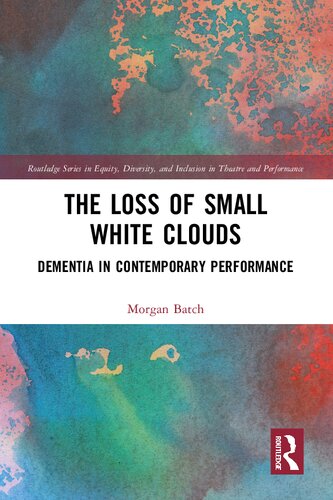

Most ebook files are in PDF format, so you can easily read them using various software such as Foxit Reader or directly on the Google Chrome browser.
Some ebook files are released by publishers in other formats such as .awz, .mobi, .epub, .fb2, etc. You may need to install specific software to read these formats on mobile/PC, such as Calibre.
Please read the tutorial at this link: https://ebookbell.com/faq
We offer FREE conversion to the popular formats you request; however, this may take some time. Therefore, right after payment, please email us, and we will try to provide the service as quickly as possible.
For some exceptional file formats or broken links (if any), please refrain from opening any disputes. Instead, email us first, and we will try to assist within a maximum of 6 hours.
EbookBell Team

0.0
0 reviewsThis volume seeks to instigate a discussion about dementia in theatre.
The discussions in this book borrow from the literature on dementia’s representation in other artforms, while reflecting on theatre’s unique capacity to incorporate multiple artforms in a live context (hypermediacy). The author examines constructions of diegesis and the use of various performance tools, including physical theatre, puppetry, and postdramatic performance. She discusses stage representations of interior experiences of dementia; selfhood in dementia; the demarcation of those with dementia from those without; endings, erasure, and the pursuit of catharsis; placelessness and disruptions of traditional dramatic constructions of time; and ultimately, performances creatively led by people with dementia. The book traces patterns of narrativisation on the stage—including common dramaturgical forms, settings, and character relationships—as well as examples that transcend mainstream representation.
This book is important reading for theatre and performance students, scholars, and practitioners, as well as cultural studies writers engaged in research about narratives of dementia.